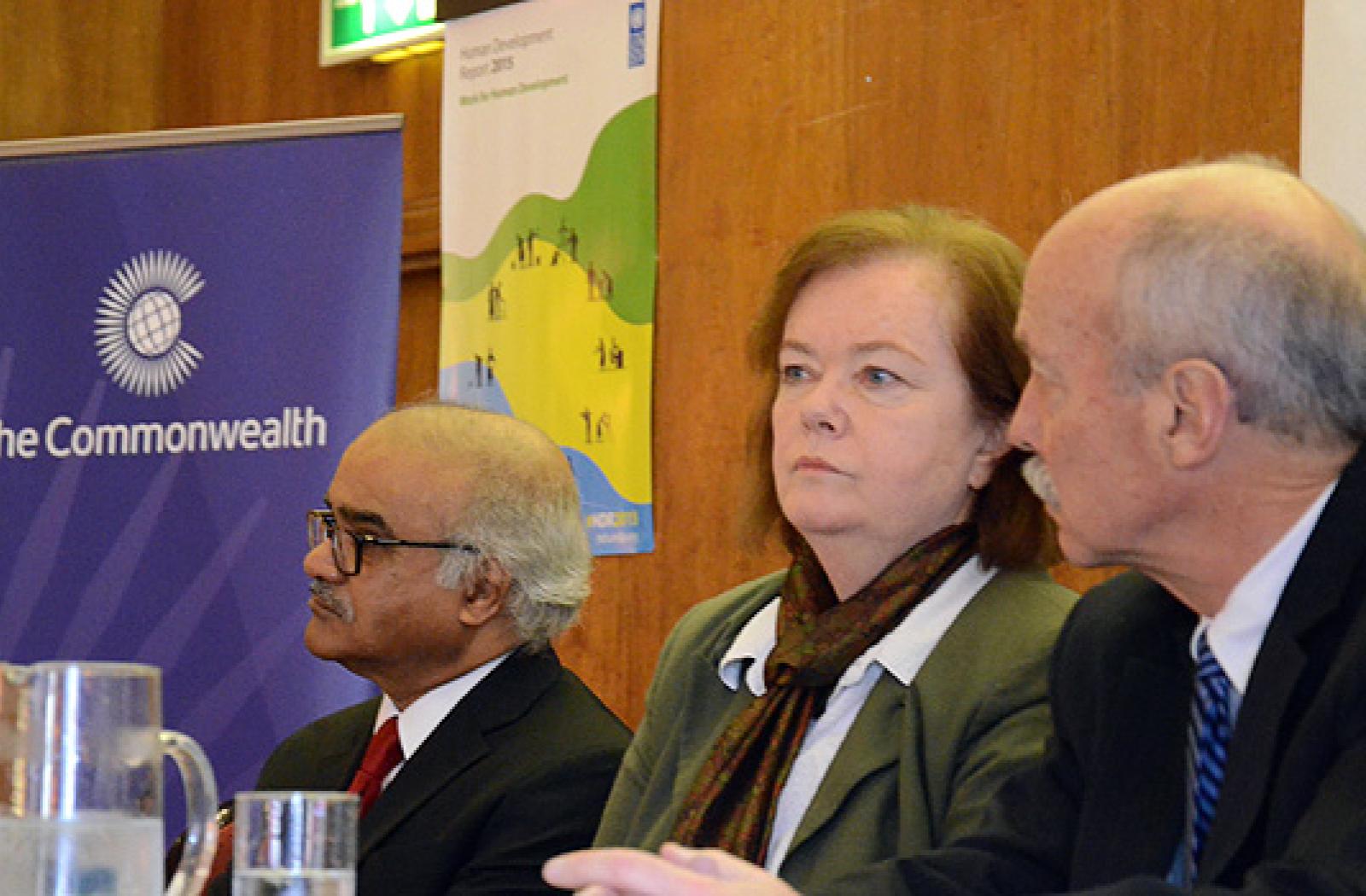The Commonwealth should seek "equitable and decent work for all” to ensure no-one is left behind in a fast-changing world, states Deodat Maharaj at a joint conference of UNDP and the Commonwealth Secretariat.

The Commonwealth should seek to enable “equitable and decent work for all” to ensure no-one is left behind in a fast-changing world, states Deodat Maharaj.
Mr Maharaj, Commonwealth Deputy Secretary-General for Economic and Social Development, spoke today at a joint event hosted by the Commonwealth Secretariat and Human Development Report Office based at UNDP in New York.
Commenting on the recently published Human Development Report, Mr Maharaj said: “There are more young people and children in the world today than ever before in history and almost 90 per cent of them live in developing countries. This means that decent work is a serious challenge for global society.”
The wide-ranging report, published in December, highlights the challenges of rapid technological progress, deepening globalisation, ageing societies and environmental concerns while encouraging governments to look beyond jobs to take the contribution of other types of work into account, such as unpaid care, voluntary, or creative work – all important for human development.
Highlighting the Commonwealth’s track-record in providing global leadership in advocating for economic, social and political freedoms, Mr Maharaj emphasised the importance of looking beyond traditional economic measures of development, industrial growth and employment.
He noted that the Commonwealth takes a "multifaceted view" of development and human well-being hence the importance of development, democracy and diversity. "From a Commonwealth perspective, the emphasis is on inclusive development, underlined by the 2016 theme for the Commonwealth, 'An Inclusive Commonwealth'."
"While Commonwealth countries have done well in the report and there are opportunities for improvement, many challenges still remain including those faced by the poor, small and vulnerable countries in the Commonwealth. The rapid digitalisation of the global economy exacerbates these constraints so effective means have to be found to create buffers and opportunities for those being left behind," Mr Maharaj noted.
The event was held at the Royal Over-Seas League in London. It included a panel discussion with leading experts in human development: Dr Selim Jahan, Director of the Human Development Report Office, Jo Boyden, Professor of International Development at Oxford University, and William Reese, President and Chief Executive of the International Youth Foundation.
In his presentation, Dr Jahan stated that rapid changes in the world are resulting in both positive and negative consequences for all types of workers. “Human development through work demands strategic policy options and an agenda for action,” he said.


